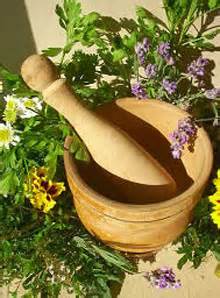
In part 1 of this medical blog series the corruption of the medical industry was discussed, and now a few home remedies will be further analyzed. It seems logical not to spend our money into the medical industry by turning to “old wive’s tales” whenever possible. Of course, there is not very much research on olde fashioned doctoring in America with big pharma lobbying; however, a study from Pakistan is revealing. The Family Medicine Department, and *Medical Students of The Aga Khan University in Karachi, Pakistan used available scientific evidence to research folk remedies. “The study was conducted on 270 patients…The remedies included cinnamon, ginger, cloves, cordimon, sesame oil, poppy seeds, honey, lemon, table salt, eggs and curd. The medical conditions in which folk remedies are used in respondents’ view, include conditions such as common cold, cough and flu to more serious conditions such as asthma, jaundice and heat stroke. Conclusions: We have found a substantial use of folk remedies for treatment of medical conditions. There is a need to organize their use on scientific lines” (Qidwai, et.al., 2003, para.1). When we first begin to stop depending on doctors for all of our health care needs we could just try a home remedy for a day or two to see if it helps before we run to the doctor’s office.

Oregano Oil is the most effective natural antibiotic known to science!pinterest.com
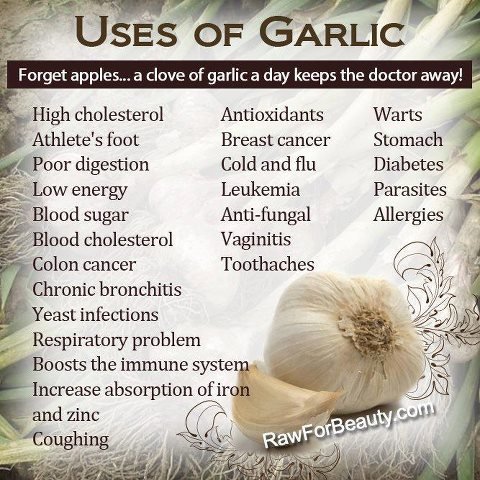
Amazing Benefits Of Garlic: Garlic is rich in compounds like Allicin, Sulphur, Zinc and Calcium that have health benefits, beauty benefits.pinterest.com
Antibiotics
Although antibiotics can be helpful, they can also cause problems. The overgrowth of antibiotic resistant microorganisms is an adverse side-effect of antibiotics that is less likely to be understood by clinicians (Dancer, 2004).
Dancer (2004) informs us that “overgrowth can itself precipitate a secondary infection, which can be more difficult to treat. Resistant organisms then spread to other patients and the environment, and contribute to increasing antimicrobial resistance worldwide. Organisms exposed to antibiotics undergo molecular changes that might enhance virulence. Enhanced pathogenicity would affect patients, particularly if the organism is also multiply resistant. Clinicians have a responsibility to select the correct antibiotic as soon as they have diagnosed infection, but an absence of microbiological understanding and ignorance of the potential environmental effects have contributed to inappropriate prescribing. The less obvious results of antimicrobial consumption probably go unrecognised in routine clinical care” (para.1).
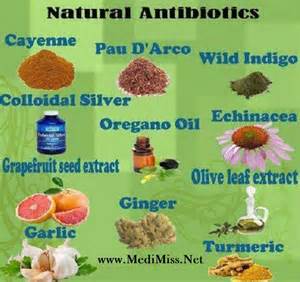
Post Antibiotic Era’ refers to a time when numerous infectious diseases no longer respond to antibiotic treatment.healthunlimitedbiz.wordpress.com
Alternatives to Antibiotics
As a smoker, I used to stay sick all winter long and get at least two rounds of ampicillin a season until I learned about cinnamon and honey and began using it. In three years, I have not had a cold for more than two days. It seems reasonable to start a natural antibiotic at onset of an illness before rushing to big pharma. My doc did advise me to start on mucus relief upon onset of congestion because bacteria grows in mucus so I keep that on hand as well. Some convenient cited memes will add color and give you some ideas.
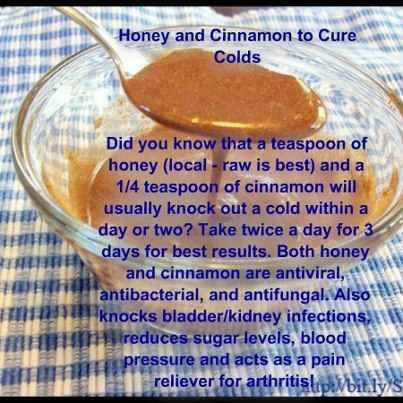
Top 10 Cinnamon And Honey Health Benefits: The various skin infections like eczema, ringworm etc can be cured by applying the mixture of honey and cinnamon powder over the affected areas.pinterest.com
Peppermint for Stomach Aches
Since I was 6-years-old I had a “nervous stomach” and as a teen I was diagnosed with Chron’s disease for which I took many prescriptions that did not control my stomach ailments. Since I discovered Altoids peppermints I have experienced minimal stomach or intestinal issues. Capello, et.al. (2007) did research on peppermint oil for treating irritable bowel syndrome and report that “a 4 weeks treatment with peppermint oil improves abdominal symptoms in patients with irritable bowel syndrome” (para.4). Peppermint for the stomach is an olde wives remedy that saved my stomach, and chances are that it could help others.

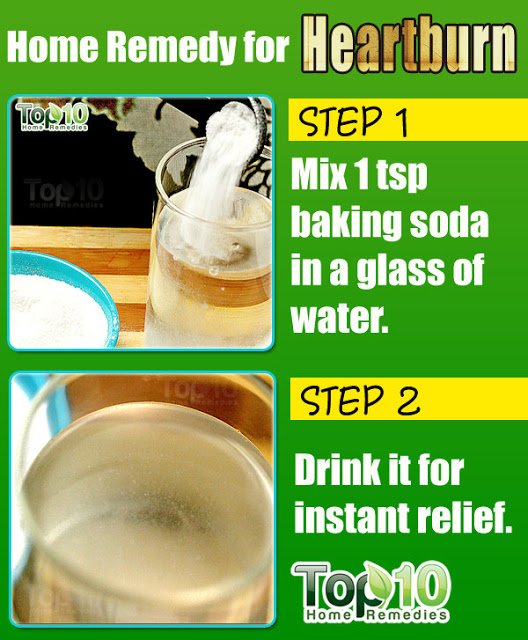
Just mix one teaspoon of baking soda in a glass of water.top10homeremedies.com
Honey and Cinnamon
There are many benefits to adding cinnamon and honey to our diet.
Heart Disease
SRIVASTAVA (2015) reports that “according to a review published in the July 2010 issue of ‘African Journal of Traditional, Complementary and Alternative Medicines,’ phenolic constituents -- quercetin, kaempferol and acacetin -- found in honey show promise for treating cardiovascular diseases. Many studies have established a strong link between regular consumption of phenolic compounds and a lower heart disease risk. These compounds may benefit your heart by decreasing blood platelet aggregation, preventing oxidation of low-density lipoproteins and improving widening of the blood vessels that supply blood to your heart” (para.2).
Blood Sugar
“A study published in the November 2012 issue of ‘Journal of Academy of Nutrition and Dietetics’ found that cinnamon can help lower your blood sugar levels, thereby minimizing your chances of developing diabetes. In the study, healthy, normal-weight and obese adults who consumed a cooked breakfast cereal with 6 grams of cinnamon showed improvements in their blood sugar levels and insulin sensitivity compared to adults who did not ingest the cinnamon-containing cereal” (SRIVASTAVA, 2015, para.3).
Cancer Protection
“Molecules” of February 2014 published a study that indicates honey effectively suppresses cancer and tumor growth. “This natural sweetener may exert its protective effect against cancer through inhibiting proliferation of cancer cells, mitigating inflammation, initiating the death of cancer cells and preventing the formation of new blood vessels that encourage cancer growth. While honey shows toxicity toward cancer cells, it poses no threat to the development of normal, healthy cells. By interfering with various processes associated with the development of cancer, honey might help prevent the disease” (SRIVASTAVA, 2015, para. 4).
High Blood Pressure Relief
. “A study reported in the October 2013 issue of the journal "Nutrition" explored the effects of cinnamon on blood pressure in people with prediabetes and Type 2 diabetes. In the study, participants who consumed cinnamon witnessed the reduction of 5.39 millimeters of mercury in their systolic blood pressure and a 2.6-millimeter of mercury drop in their diastolic blood pressure readings. While cinnamon shows positive effects on blood pressure, more studies are needed to confirm its usefulness” (SRIVASTAVA, 2015, para. 5).
Sugar Warning
Although honey is goode for us, it is a sugar that should be used in moderation. The caloric content of honey is 64 calorie units per 1-tablespoon. “The American Heart Association recommends that women should eat no more than 100 calories per day from added sugars, or 6 teaspoons of sugar, and men should have no more than 150 calories a day, which is equal to 9 teaspoons” (SRIVASTAVA, 2015, para.6). Despite the calorie warning, it seems like a great preventative measure to use honey, and if it doesn’t work we can always go to the doctor.

Medicine for Throat Infection
Known mainly for their culinary uses, Lemons have a list of alternative uses from Ayurvedic medicine to cleaning.pinterest.com
References
1 Cappello, G., Spezzaferro, M., Grossi, L., Manzoli, L., & Marzio, L. (2007). Peppermint oil (Mintoil®) in the treatment of irritable bowel syndrome: A prospective double blind placebo-controlled randomized trial. Digestive and liver disease, 39(6), 530-536. http://dx.doi.org/10.1016/j.dld.2007.02.006 Retrieved from http://www.sciencedirect.com/.../pii/S1590865807000618
2
DDancer, S. J. (2004). How antibiotics can make us sick: the less obvious adverse effects of antimicrobial chemotherapy. The Lancet infectious diseases, 4(10), 611-619. http://dx.doi.org/10.1016/S1473-3099(04)01145-4
3
QQidwai, W., Alim, S. R., Dhanani, R. H., Jehangir, S., Nasrullah, A., & Raza, A. (2003). Use of folk remedies among patients in Karachi Pakistan. J Ayub Med Coll Abbottabad, 15(2), 31-3. Retrieved from http://www.ayubmed.edu.pk/.../Qidwai%20Folk%20Remedies.htm
SSRIVASTAVA, MALA. (18 April, 2015). Benefits of Cinnamon & Honey. Livestrong.com. Retrieved from http://www.livestrong.com/article/349170-benefits-of-cinnamon-honey/